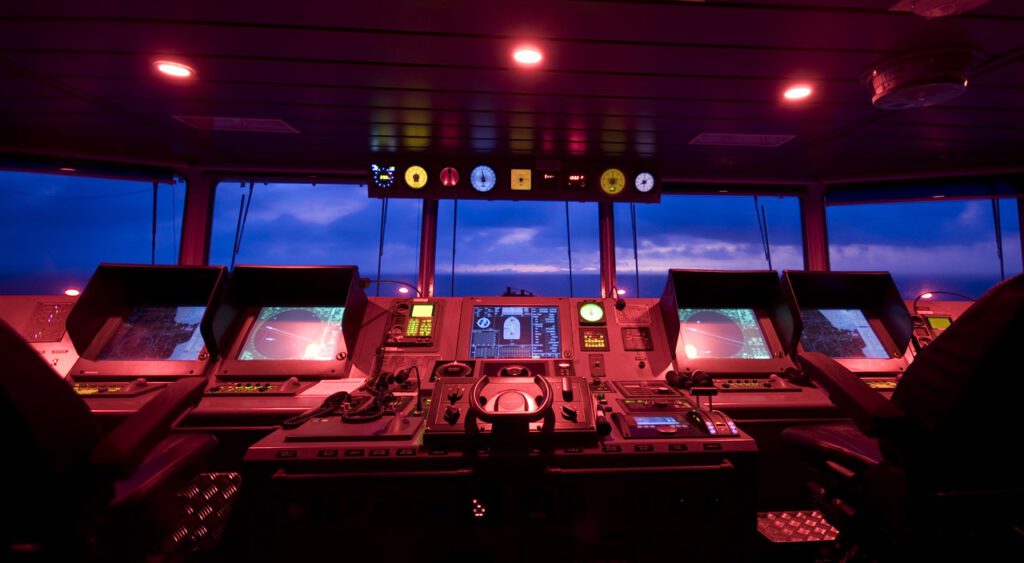Introduction
The Israel and Palestine/Hamas conflict has worsened with reportedly over 30,000 Palestinians dead, and the Gaza Strip completely decimated. This appears to have generated a widening of Houthis attacks on shipping in support of Hamas. A separate and coincident resurgence of Somalia pirate boardings and ship hijackings adds to the danger. This Risk Bulletin highlights the current security threats to shipping in the Red Sea, Gulf of Aden, Somalia Bight, and Indian Ocean/Arabian Sea areas.
Background
The background to Houthi attacks and their support of Hamas in the Israel/Palestine conflict is reported in Risk Bulletin 78. Counter attacks have been made by American, British, and other naval forces on Houthi launched anti-ship missiles and drones as well as on their shore bases. Despite this, Houthi attacks continue and have widened out into the Gulf of Aden and the Indian Ocean/Arabian Sea.
The Houthis have declared they are only attacking shipping with a connection to Israel, the UK or the US. This appears to be not only in relation to flag register but also to beneficial ownership, management, and finance. However, as evidenced by attacks on Barbados and Singapore flagged vessels, the Houthi interpretation of ‘connection’ appears to be flexible and therefore unreliable as an attack predictor.
The resurgence of Somalia based piracy is reported to have been caused by political/clan instability and the consequent loss of fishing licences by Somalia sub-clan fishermen. The retaliatory hijacking and ransoming of licensed fishing dhows followed. This then expanded to a return to the piracy of commercial ships in the Gulf of Aden and Indian Ocean.
In terms of the sea area now under shipping security threat, this has widened to include commercial ships which are transiting the Indian Ocean to bypass the Red Sea and Suez Canal. As such, the total number of vessels exposed to threats from Houthi and/or Somalia pirate attacks has greatly increased,
Current Situation – Houthi Attacks
As advised by Risk Bulletin 78, an important source of updated ship security threats information is provided by the US Maritime Administration Website. Selected extracts from the latest MSCI Advisory 2024-004 (in force from 18 Mar 2024) are in italics as below:
Houthi Hostile Actions: Commercial vessels transiting the Southern Red Sea, Bab el Mandeb Strait, and Gulf of Aden continue to be at an elevated risk of terrorism and other hostile actions from the Houthis.
Hostile actions include one-way Unmanned Aerial Vehicle (UAV) attacks; Unmanned Surface Vehicle (USV) attacks; ballistic and cruise missile attacks; small arms fire from small boats; explosive boat attacks; and illegal boardings, detentions, and/or seizures.
There have been at least 47 separate Houthi attacks on commercial vessels and one Houthi seizure of a commercial vessel in these areas, affecting over 55 nations since November 19, 2023.
NOTE: As advised previously by the MSCI, all ship masters should refer to guidance posted on the UKMTO website. The UKMTO acts as the primary point of contact for merchant vessels and liaison with military forces in the Red Sea, Gulf of Aden an Indian Ocean region. The UKMTO site also provides both access to the UKMTO Voluntary Reporting System (VRS) and daily reports on vessel incident and immediate alerts to VRS participants.
U.S. flagged commercial vessels operating in these areas are strongly advised to turn off their AIS transponders, unless vessel Masters believe that doing so would compromise the safety of the vessel.
NOTE: The MSCI’s advice that US flag vessels should turn off AIS transponders is based on their assessment that this should assist in preventing ship tracking by Houthi operatives. This is new advice which is contrary to the longstanding advice provided by the UKMTO and BIMCO that AIS transponders should be left on while underway, subject always to IMO Res. A. 1106(29) which provides at Para. 22 that:
“If the master believes that the continual operation of AIS might [1] compromise the safety or security of his/her ship or [2] where security incidents are imminent, the AIS may be switched off.”
MMIA does not provide insurance cover to US flagged vessels for commercial reasons. Members are therefore free to re-assess the related benefits and risks of turning off AIS transponders ,subject always to IMO Res. A. 1106(29) as above.
Maritime operators are advised to alert their crews to the fact that all electronics signals from their vessels pose a risk to maritime operations and are strongly advised to secure Wi-Fi routers while underway in these areas when feasible.
NOTE: This is useful advice for all Members. It also provides a clear reminder that it is possible for vessels to be tracked by their use of electronic devices other than AIS, inclusive of mobile phones and radar transmissions.
Current Situation – Somalia Pirate Attacks
The MSCI advice referred to above includes a separate section on Piracy and Armed Robbery. Selected extracts from the latest MSCI Advisory 2024-004 (in force from 18 Mar 2024) are in italics as below:
Piracy and Armed Robbery Against Ships: Recent cases of piracy pose a threat to commercial vessels operating in the Gulf of Aden, Arabian Sea, Somali Basin, and Indian Ocean. Since November 2023, there have been three boarding/hijacking incidents, representing the first such attacks against commercial shipping in the region since March 2017.
Pirates may utilize captured fishing vessels as motherships to target vessels operating hundreds of miles from the coast of Somalia. In November 2023, one Liberian-flagged vessel was boarded in the Gulf of Aden; in December 2023, one Malta-flagged vessel was hijacked in the Arabian Sea; and in January 2024, one Liberia-flagged bulk carrier was boarded in the Indian Ocean.
Specific case details are available on the Office of Naval Intelligence’s weekly “Worldwide Threat to Shipping” product at https://www.oni.navy.mil/ONI-Reports/Shipping-Threat-Reports/Worldwide-Threat-to-Shipping/.
The attention of Members is also drawn to a BIMCO article (13 March 2024) ‘Recent Somali Pirate Attacks Emphasise Importance of Self Protection’. The article notes the Somalia piracy hijackings of the Malta-flagged bulk carrier ‘Ruen’ (14 Dec 2023) and the Bangladesh-flagged bulk carrier ‘Abdullah’ on 12 March.
NOTE: After the BIMCO article was published, the ‘Ruen’ was retaken in the Indian Ocean by the Indian Navy destroyer ‘INS Kolkata’ on 16 March 2024. None of the ‘Ruen’s’ crew were injured and all 35 pirates were captured. Reportedly, the ‘Ruen’ had departed from the Somalia central coast to be used as a ‘mother ship’ to carry out more attacks. The ‘Abdullah’ and her crew remain captive to Somalia pirates.
Shipowner/Member Precautions – BIMCO update
Updated ‘Security Guidelines for Navigation in the Southern Red Sea and Gulf of Aden’ were published on 5 Feb 2024 by BIMCO and its affiliated shipping organisations. A dedicated BIMCO webpage provides a free PDF download
Selected extracts are provided in italics as below:
The current maritime threat is greater where Houthi forces are present, in the vicinity of the Yemeni Red Sea coastline. However, it should be noted that Houthi forces have demonstrated their ability to target and attack ships in the Gulf of Aden as far as one hundred nautical miles from the coast.
The threat level to ships with Israeli, United Kingdom, and United States
interests remains high. However, all owners, operators, and crews should be cognisant their vessel could be misidentified and understand their risk of collateral damage.
As explained in [the BIMCO Best Management Practices publication] BMP 5, ships planning a passage through the Southern Red Sea and Gulf of Aden should conduct a thorough ship and voyage-specific threat and risk assessment considering any additional advice from their flag State. These assessments should include input from official sources, such as UKMTO, and relevant information such as operation specifics, shipping associations guidance, ownership details, and trading history of the ship in the last 3 years that could impact decision making.
NOTE: A free copy of BMP 5 is available from the ICS webpage.
Conclusion and Takeaway
The current security threats to shipping in the Red Sea, Gulf of Aden, Somalia Bight, and Indian Ocean/Arabian Sea areas remain highly dangerous and may deteriorate further if Israel and Hamas fail to agree terms for a ceasefire. Members trading in the areas noted above should, therefore, keep a close watch on developments.
Affected Members should also pay close attention to the full texts of both the updated MSCI Advisory 2024-004 and the updated BIMCO Security Guidelines, as noted and outlined above. They should also ensure that these updates are reviewed and acted on by their DPAs, CSOs, ship managers and ship masters by way of incorporation into their ISPS Code Ship Security Plans and ISM Code Passage Planning Procedures. Full implementation must then be encouraged and checked to accomplish full compliance and optimum safety in high risk conditions.
Members are again respectfully reminded of the advice provided in Risk Bulletin 78 of the MMIA Rulebook, General Rules of the Association, Rule 29, Specific Exclusions, which excludes cover for losses and liabilities caused by war (actual or threatened) and terrorist acts. Members need to understand that MMIA does not provide either supplementary War Risk or Kidnap and Ransom (K&R) cover. Members trading in the above mentioned high risk areas must therefore confer with their P&I brokers to obtain the specialist cover required. Finally, Members are directed to the MMIA Circular of 29 Jan 2023, Deviations from the Contractually Agreed Voyage, which explains the requirement for Members to notify the Club in advance if their vessels are re-routed to avoid the aforesaid high risk areas.


